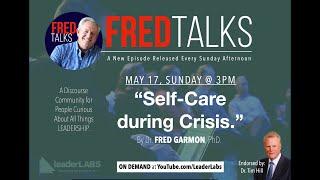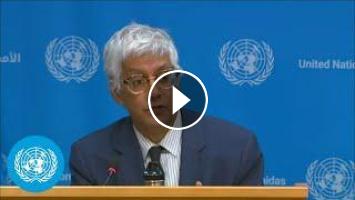Noon briefing by Farhan Haq, Deputy Spokesperson for the Secretary-General.
Highlights:
Occupied Palestinian territory
Libya
Security Council
Deputy Secretary-General
Haiti
Sudan
Air pollution
International Day for the Elimination of Sexual Violence in Conflict
Guests tomorrow
OCCUPIED PALESTINIAN TERRITORY
In Gaza, the Office for the Coordination of Humanitarian Affairs says that people continue to be displaced amidst active fighting and bombardment.
Currently, UNRWA estimates that 65,000 people remain in Rafah. This is in stark contrast to six weeks ago, when Rafah hosted 1.4 million displaced before the Israeli evacuation orders and military operations.
UNRWA also tells us that for more than 8 months now, 625,000 children have been out of school because of the hostilities. Humanitarian partners are lending support by offering psychosocial activities, but children need to resume their schooling.
Meanwhile, OCHA reports that for the first time since early June, five trucks of fuel entered Gaza. However, the supplies remain scarce as no fuel had been delivered in the Strip for the past two weeks.
LIBYA
Stephanie Koury, the Deputy Special Representative for Libya, briefed the Security Council on her consultations with Libyans today, and she said that overwhelmingly, citizens conveyed the need for a political agreement so that credible national elections can be held to restore legitimacy to all institutions. She discussed the need for an inclusive Libyan-led process to overcome the political impasse and support the Libyan people in achieving their aspirations for peace, stability, prosperity and democracy.
Ms. Koury said that many Libyans continue to express deep concerns, which she shares, about the de facto division of the country and parallel governing institutions. These developments undermine economic, security and stability, as well as Libya’s sovereignty and territorial integrity, amidst concerns about the impact of geopolitical tensions on Libya.
She commended the work of the Presidential Council and the House of Representatives Justice and Reconciliation Committee for agreeing on one draft law that upholds victims’ rights and adheres to international standards. She calls on all relevant bodies to engage in the same spirit so that this vital legislation can be adopted based on consensus.
SECURITY COUNCIL
As you know, yesterday afternoon, the Under-Secretary-General for Political and Peacebuilding Affairs, Rosemary DiCarlo, briefed the Security Council on Ukraine. She noted that this past weekend, many world leaders came together in Switzerland to build consensus on the elements of a just peace in Ukraine. Those discussions took place in the wake of a sharp escalation of hostilities and an appalling increase in civilian casualties.
Ms. DiCarlo said that in Switzerland, over the weekend many voices stressed the need to adhere to the principles of the UN Charter. She stressed that these principles are as valid today as they were in 1945.
Ms. DiCarlo added that the Secretary-General has been consistent and clear, calling for a just, lasting and comprehensive peace in Ukraine, in line with the UN Charter, international law and relevant General Assembly resolutions. The United Nations welcomes and is ready to support all meaningful efforts and initiatives towards this end.
DEPUTY SECRETARY-GENERAL
This morning, the Deputy Secretary-General Amina Mohammed spoke at the General Assembly Annual Review of HIV/AIDS on behalf of the Secretary-General.
She said that on HIV and AIDS, we have an inspirational story to tell with more than three quarters of those living with HIV receiving live-saving treatment – that’s almost thirty million people globally.
Access to antiretroviral therapy has expanded massively across sub-Saharan Africa, and Asia and the Pacific – which together are home to more than 80% of people living with HIV.
She added that if progress is maintained, we are on course to reach a key global milestone next year: 34 million people receiving HIV treatment.
Ms. Mohammed urged countries to continue with this progress by supporting low-and middle-income countries so they can expand their national health and HIV investments.
Full Highlights:
https://www.un.org/sg/en/content/noon-briefing-highlight?date%5Bvalue%5D%5Bdate%5D=19%20June%202024
Highlights:
Occupied Palestinian territory
Libya
Security Council
Deputy Secretary-General
Haiti
Sudan
Air pollution
International Day for the Elimination of Sexual Violence in Conflict
Guests tomorrow
OCCUPIED PALESTINIAN TERRITORY
In Gaza, the Office for the Coordination of Humanitarian Affairs says that people continue to be displaced amidst active fighting and bombardment.
Currently, UNRWA estimates that 65,000 people remain in Rafah. This is in stark contrast to six weeks ago, when Rafah hosted 1.4 million displaced before the Israeli evacuation orders and military operations.
UNRWA also tells us that for more than 8 months now, 625,000 children have been out of school because of the hostilities. Humanitarian partners are lending support by offering psychosocial activities, but children need to resume their schooling.
Meanwhile, OCHA reports that for the first time since early June, five trucks of fuel entered Gaza. However, the supplies remain scarce as no fuel had been delivered in the Strip for the past two weeks.
LIBYA
Stephanie Koury, the Deputy Special Representative for Libya, briefed the Security Council on her consultations with Libyans today, and she said that overwhelmingly, citizens conveyed the need for a political agreement so that credible national elections can be held to restore legitimacy to all institutions. She discussed the need for an inclusive Libyan-led process to overcome the political impasse and support the Libyan people in achieving their aspirations for peace, stability, prosperity and democracy.
Ms. Koury said that many Libyans continue to express deep concerns, which she shares, about the de facto division of the country and parallel governing institutions. These developments undermine economic, security and stability, as well as Libya’s sovereignty and territorial integrity, amidst concerns about the impact of geopolitical tensions on Libya.
She commended the work of the Presidential Council and the House of Representatives Justice and Reconciliation Committee for agreeing on one draft law that upholds victims’ rights and adheres to international standards. She calls on all relevant bodies to engage in the same spirit so that this vital legislation can be adopted based on consensus.
SECURITY COUNCIL
As you know, yesterday afternoon, the Under-Secretary-General for Political and Peacebuilding Affairs, Rosemary DiCarlo, briefed the Security Council on Ukraine. She noted that this past weekend, many world leaders came together in Switzerland to build consensus on the elements of a just peace in Ukraine. Those discussions took place in the wake of a sharp escalation of hostilities and an appalling increase in civilian casualties.
Ms. DiCarlo said that in Switzerland, over the weekend many voices stressed the need to adhere to the principles of the UN Charter. She stressed that these principles are as valid today as they were in 1945.
Ms. DiCarlo added that the Secretary-General has been consistent and clear, calling for a just, lasting and comprehensive peace in Ukraine, in line with the UN Charter, international law and relevant General Assembly resolutions. The United Nations welcomes and is ready to support all meaningful efforts and initiatives towards this end.
DEPUTY SECRETARY-GENERAL
This morning, the Deputy Secretary-General Amina Mohammed spoke at the General Assembly Annual Review of HIV/AIDS on behalf of the Secretary-General.
She said that on HIV and AIDS, we have an inspirational story to tell with more than three quarters of those living with HIV receiving live-saving treatment – that’s almost thirty million people globally.
Access to antiretroviral therapy has expanded massively across sub-Saharan Africa, and Asia and the Pacific – which together are home to more than 80% of people living with HIV.
She added that if progress is maintained, we are on course to reach a key global milestone next year: 34 million people receiving HIV treatment.
Ms. Mohammed urged countries to continue with this progress by supporting low-and middle-income countries so they can expand their national health and HIV investments.
Full Highlights:
https://www.un.org/sg/en/content/noon-briefing-highlight?date%5Bvalue%5D%5Bdate%5D=19%20June%202024
- Category
- United Nations
- Tags
- UN, United Nations, UNGA
Be the first to comment













